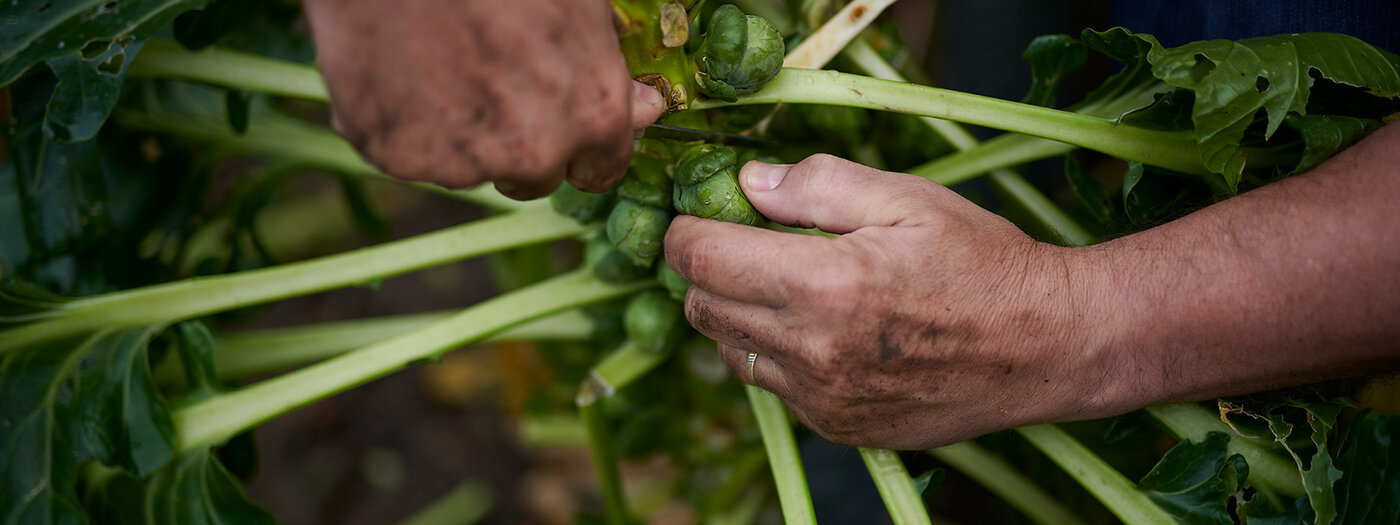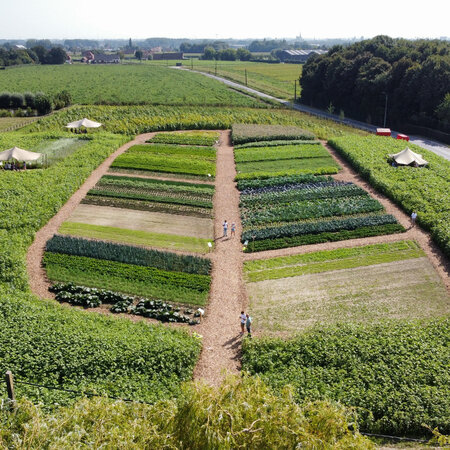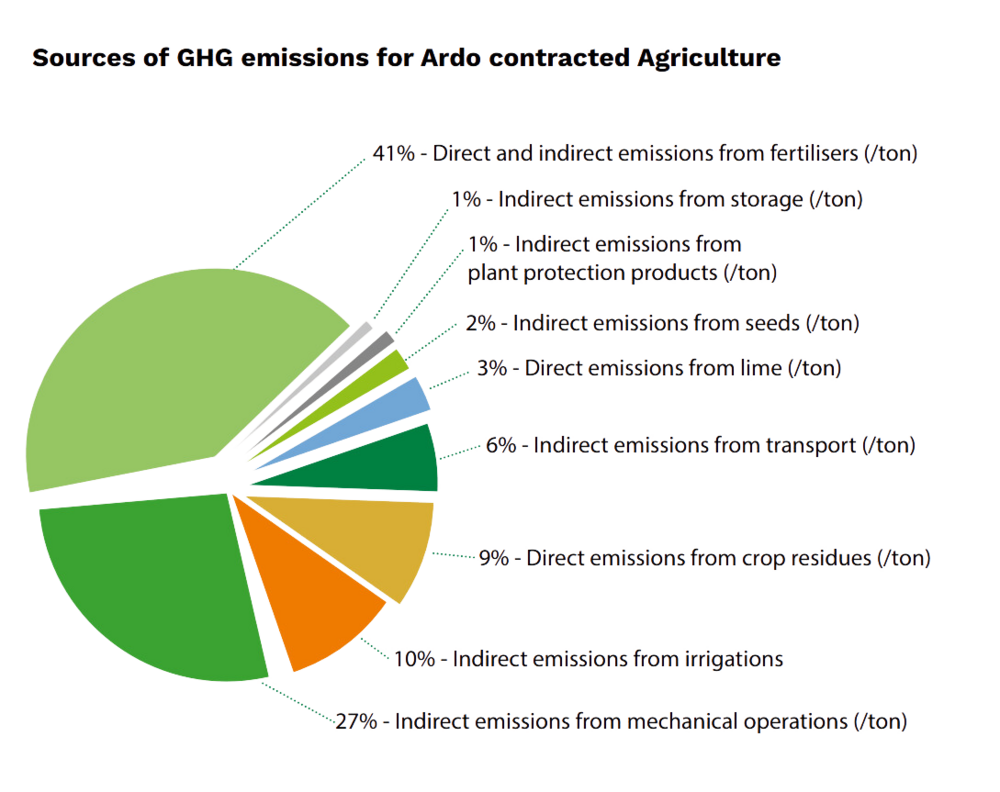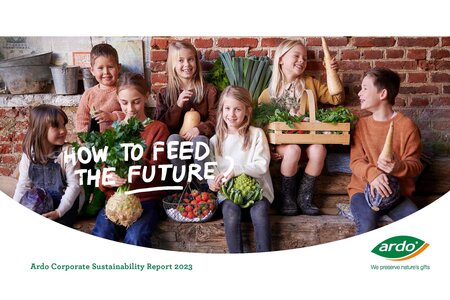
From MIMOSA to MIMOSA+
In 2011, we launched our MIMOSA programme
(Minimum Impact, Maximum Output, Sustainable Agriculture). Each year, hundreds of trials, benchmarks and technical meetings are organised to challenge and improve our growing techniques, allowing us to reduce the use of crop protection products.
Over the past five years, we have witnessed significant climate change impacts on our crops, with more variability in the yields across our growing zones and an overall decrease in harvested volumes per hectare. Recognising that climate change and soil erosion have increasingly disruptive impacts on the harvests, we have decided to step up our efforts by introducing MIMOSA+. This is our proactive response to enhance climate resilience across our growing zones, in line with the widely accepted principles of regenerative agriculture.

MIMOSA+ helps to reduce carbon emissions
Farming practices are often associated with carbon emissions, because of the machinery and inputs used. In adherence to our MIMOSA+ principles, we are committed to reducing the carbon footprint of our crop growing activities by implementing emission-reducing measures and promoting carbon sequestration.

MIMOSA+, regenerating and revitalising the soil and ecosystems

-
Living soils – Improving soil health and humus content
The soil’s structure is crucial in withstanding extreme weather conditions and it is essential to recognise that our agricultural practices significantly influence it.
-
Cover crops – Implementing soil cover for more than 240 days a year and optimising cover crop mixes
As part of our MIMOSA+ programme, we encourage our farmers to grow cover crops and cover the soil for more than 240 days a year. These practices offer numerous advantages to soil health and the resilience of our crops.
-
Biodiversity – Allocating surface to biodiversity development
At Ardo, we are keen on making a positive contribution to restoring the biodiversity surrounding our 43,000 hectares of vegetables. Our goal is to support farmers in allocating a share of agricultural land to biodiversity through flower beds or other types of biodiversity infrastructures.
-
Water – Optimising irrigation
The availability of water used for irrigation from regular rainfall or water reserves has become increasingly less reliable over the years. This trend emphasises the need to preserve this precious resource and use it as efficiently as possible.
-
Plant nutrition – Reducing fertilisation
The use of nitrogen-based fertilisers in agriculture is associated with various environmental issues, including greenhouse gas emissions, soil degradation and water pollution. Following our MIMOSA+ principles, we assist our farmers in optimising crop yields and product quality while minimising the use of mineral fertilisers.
